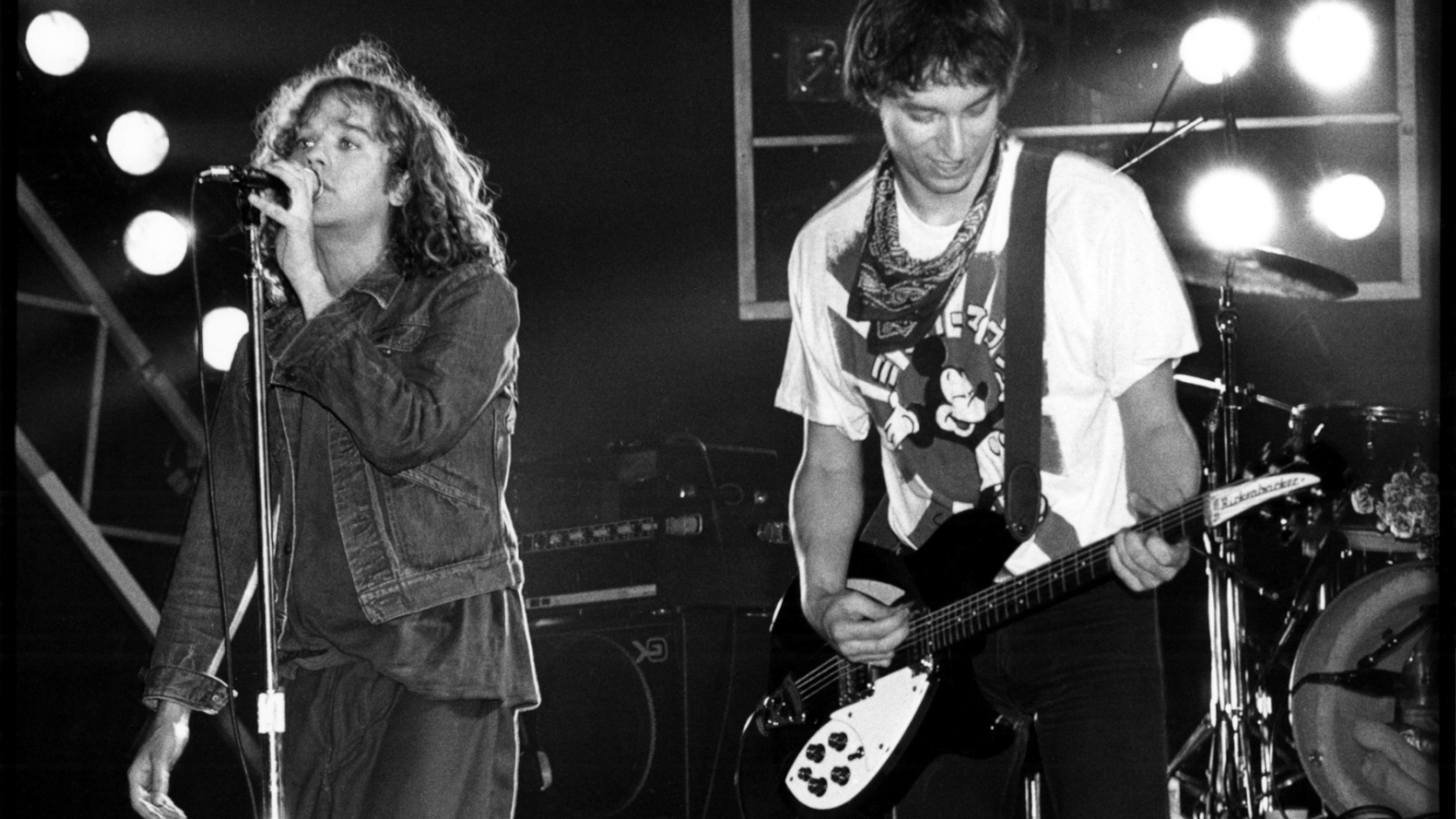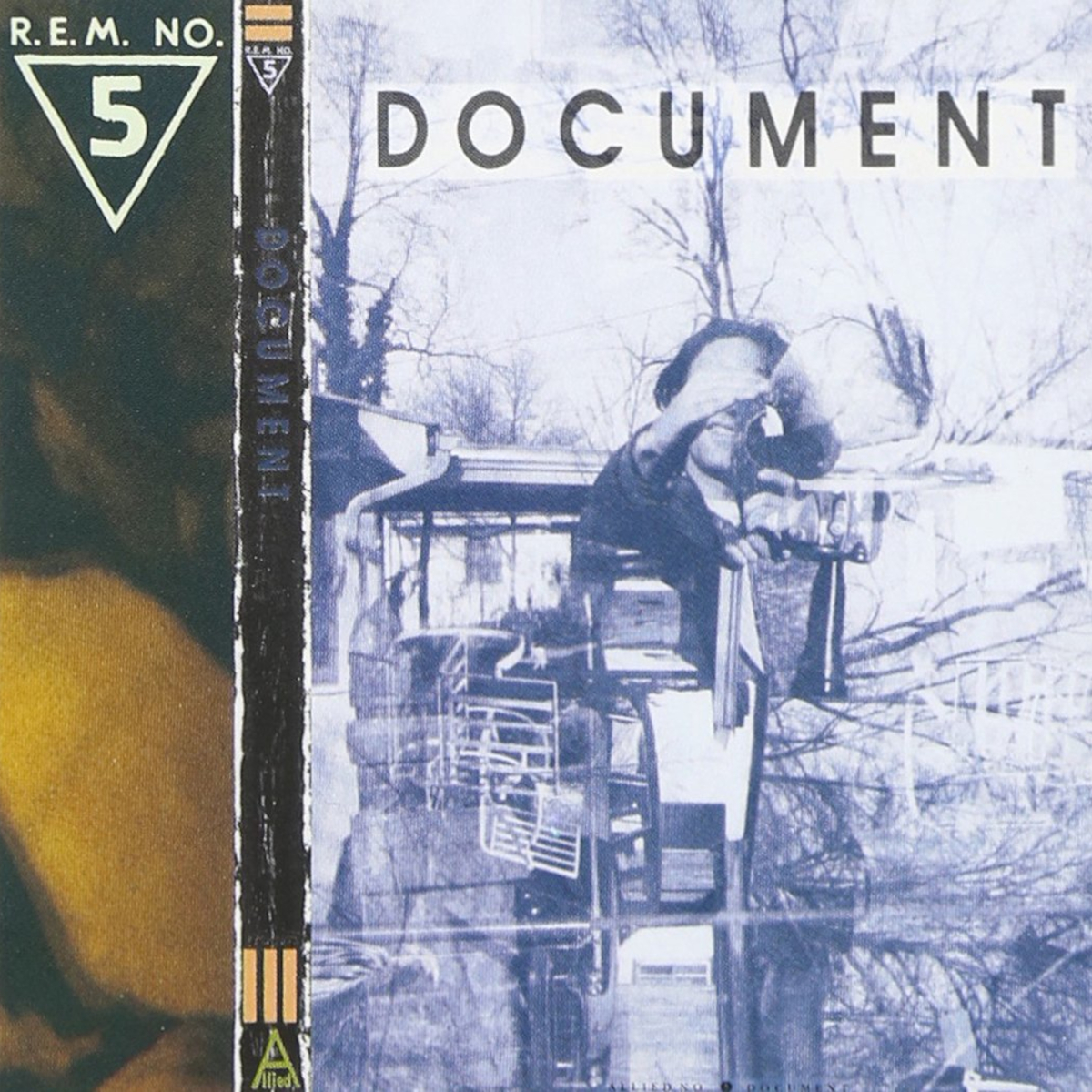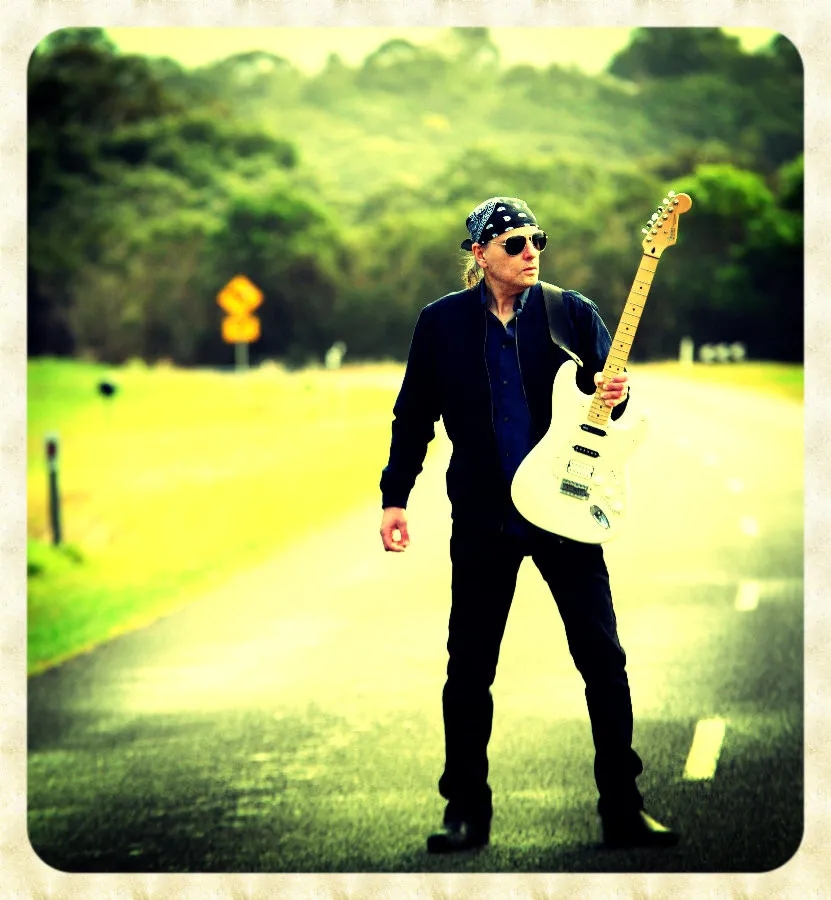“All of a Sudden, Our Audiences Doubled”: Peter Buck Opens up About R.E.M.’s Breakthrough Hit, “The One I Love”
The guitarist reveals the surprising truth behind their 1987 smash

All the latest guitar news, interviews, lessons, reviews, deals and more, direct to your inbox!
You are now subscribed
Your newsletter sign-up was successful
“It was about fucking time!” R.E.M. guitarist Peter Buck exclaims on recalling the group finally achieving its first U.S Top 10 hit with 1987’s “The One I Love.”
“In America, it was like radio stations just weren’t interested in whatever we did. It was never the right thing.
“But we sold a lot of records, and that single definitely changed the way the world perceived us. And all of a sudden, our audiences doubled.”
Not Love, Actually
It had been a long hard slog for the alt-rockers, who formed in 1980 and released four albums prior to 1987’s Document, which included “The One I Love.”
At first I thought, God, it’s a love song. But then I was listening to the playback, and I went, Oh, it’s not
Peter Buck
Buck recalls coming up with the riff while on his front porch, noodling around on his guitar. “I remember just sitting there and playing almost the whole song all the way through,” he says. “And then I showed it to the rest of the guys, and boom!
“Musically, it was there within one or two passes. Then Michael [Stipe] sang it within a day after coming up with the lyrics. It was one of those instantaneous things.”
While its lyrics allude to the subject of love, the song is often misinterpreted, Buck says.
All the latest guitar news, interviews, lessons, reviews, deals and more, direct to your inbox!
“It’s really a dark song,” he explains. “At first I thought, God, it’s a love song. But then I was listening to the playback, and I went, Oh, it’s not. But it can pass for one if you’re not paying attention.”
Litt Up
Recording sessions for the track began at Sound Emporium Studios, in Nashville, under the watchful eye of newly installed producer Scott Litt.
“Document was the first record where Scott began working with us,” Buck says. “He had a great ear and also had really good ideas about how to get the best out of us, so we didn’t waste a lot of time.
“I could count on him knowing everything was going to sound great. I didn’t have to sit there worrying about things like the second-rack tom and the tone of it, I could listen to it and know that everything was going to be fine. He was a great producer for us.”
Litt was integral to helping Buck achieve the guitar sound he was after.
I didn’t want to overdo it, but at the same time I didn’t want to have just one guitar, like on a demo
Peter Buck
“He helped immensely with the layering of my guitars,” he says. “I didn’t want to overdo it, but at the same time I didn’t want to have just one guitar, like on a demo.
“Underneath the main guitar track there is a live guitar track, which I doubled with my black 1981 Rickenbacker 360 Jetglo that was strung with round-wound strings. I used a .014 on the high E and went down to a .058 on the low E.
“I overdubbed the guitar solo. When I realized there was going to be a solo, I did one that’s more of a musical statement than a real solo. There were no effect pedals, as I never really used pedals in the studio at all, unless I actually had to.
“The track used various amps, as at that point I had a Mesa/Boogie and a Vox AC30 and went back and forth with those. There is also an acoustic guitar overdub buried in the mix. The acoustic was an early ’60s Gibson rented from Gruhn Guitars.”

The One I Sometimes Love
“The One I Love” debuted at 84 on the Billboard Hot 100 in September 1987 and peaked at number nine in early December.
“Having the chart success was important in that it meant we were reaching a larger audience,” Buck says.
To be honest, it wasn’t a song I think that any of us felt was totally from the heart
Peter Buck
Afterward, the band was labeled a jangle-pop group. “But that never bothered me, because, to a certain degree, it was true,” he says. “There was that period in America where it was all jangly guitars, and every single band sounded like a bad version of R.E.M.
“But we did a lot of other stuff too, and there’s plenty of records where it’s really noisy, heavy and chaotic.”
The song continued to be a fan favorite over the band’s long run, which lasted until 2011.
“We had it in our set list for a while, and then it wasn’t, and then it came back,” Buck explains. “To be honest, it wasn’t a song I think that any of us felt was totally from the heart.
“It was just a cool song. It wasn’t something I felt like I had to play at every gig. But at a certain point you realize that the audience really likes it, so why not put it in the set?”
Browse the R.E.M. catalog here.
Joe Matera is an Italian-Australian guitarist and music journalist who has spent the past two decades interviewing a who's who of the rock and metal world and written for Guitar World, Total Guitar, Rolling Stone, Goldmine, Sound On Sound, Classic Rock, Metal Hammer and many others. He is also a recording and performing musician and solo artist who has toured Europe on a regular basis and released several well-received albums including instrumental guitar rock outings through various European labels. Roxy Music's Phil Manzanera has called him "a great guitarist who knows what an electric guitar should sound like and plays a fluid pleasing style of rock." He's the author of two books, Backstage Pass; The Grit and the Glamour and Louder Than Words: Beyond the Backstage Pass.

